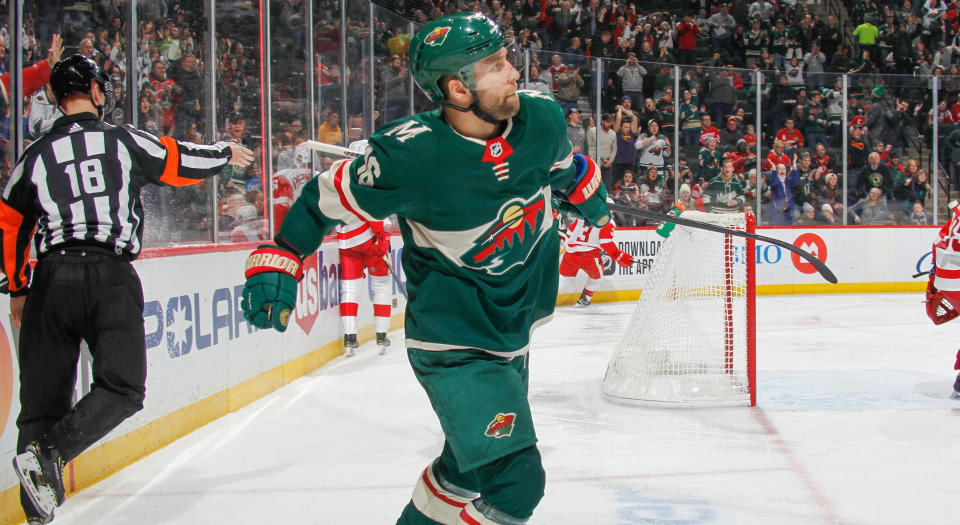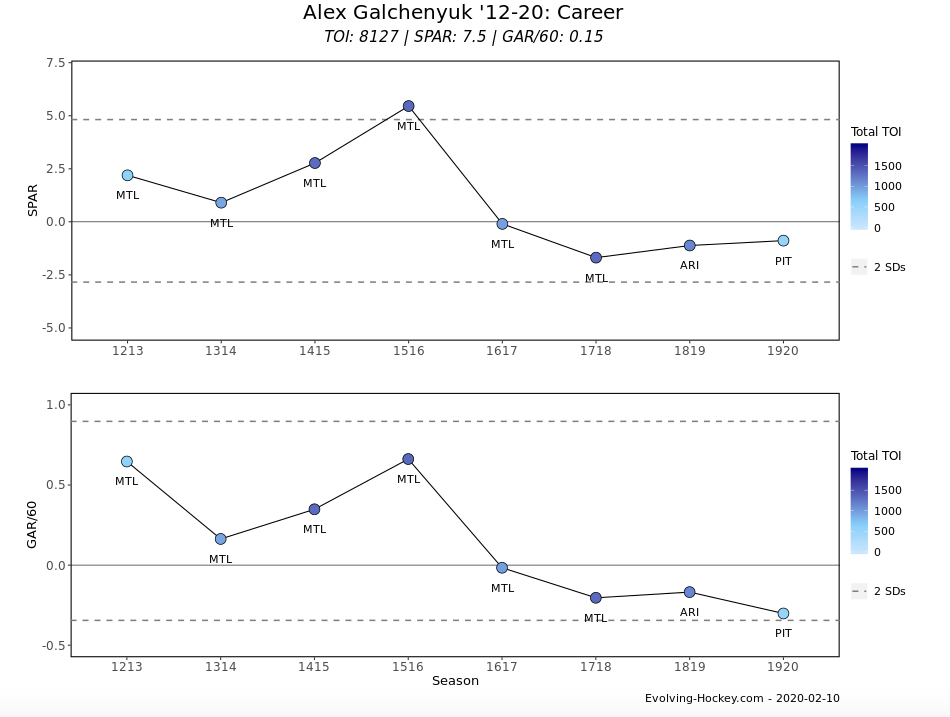Penguins trade a pile of maybes to chase another Cup
The Pittsburgh Penguins added Jason Zucker, and gave up essentially nothing but potential.
In Alex Galchenyuk’s case — a lot of unmet potential.
In a world where we hyper-analyze every single transaction throughout the NHL, there aren’t many more clear-cut wins than the Penguins’ Monday night trade to acquire Zucker from the Minnesota Wild, for just a pile of maybes.
Zucker has been one of the most consistent forwards for a while now and is able to score over 20 goals and notch over half a point per game, but it’s not just pure offence that the 28-year-old winger can give the Penguins.

Of course Pittsburgh already has all the offensive power that a team could handle with Sidney Crosby and Evgeni Malkin down the middle, but Zucker is that sneaky good two-way winger head coaches wish their children would grow up to be.
He has rarely been described as an irresponsible player while on the ice and contributes to shot suppression and limits opposing offence in a way that only members of the Minnesota Wild can.
Pass couldn't get through to Eric Staal, but this was an awesome effort from Jason Zucker. pic.twitter.com/2geYqdGpkf
— Hockey Wilderness (@hockeywildernes) December 6, 2019
Imagine that level of talent and added value, but locked up to a fair contract. There are still three years left after this season on Zucker’s five-year, $27.5-million deal he signed in July of 2018. With a manageable cap hit of $5.5-million, the trade looks even more lopsided.
In compliment to the Penguins’ stars up front and their surge of young no-name talents that are just able to instantly fit into head coach Mike Sullivan’s system, Zucker is a near-perfect addition. And to just twist the knife into the hearts of non-Penguins fans, GM Jim Rutherford sent nothing of massive or immediate impact to Minnesota for the cost-controlled, high-impact forward.
The Wild were able to snag 26-year-old forward and constant bounceback candidate Alex Galchenyuk, a defenceman prospect in Calen Addison and a first-round pick that is most likely going to end up basically being a second-round pick. That is a whole lot of meh for a player that can contribute on a long-term deal.
Galchenyuk has the reputation as a high-skill forward since being selected third-overall by the Montreal Canadiens in 2012, but has never really fulfilled his potential.

Galchenyuk peaked — when it comes to raw contribution in goals above replacement — all the way back in the 2015-16 regular season. Since then, he has become a below-replacement level player and one of the worst forwards in the NHL.
All that wrapped up in a contract carrying a $4.9-million cap hit that expires this summer, is not a good look for the Wild.
Before Galchenyuk heads into the scary world of unrestricted free agency, he will get some opportunity with Minnesota, but if he couldn’t make his offence pop with the Penguins, the Wild are surely going to witness a rude awakening.
But of course Minnesota will always have their future assets they acquired for Zucker to defend the trade on, and that should provide some entertainment at least.
Turning 20 years of age in April, Calen Addison is in his final year of major junior hockey and the right-handed defenceman has 43 points through 39 games in the WHL. There is no true way to predict how a player will perform when — or if — they make it in the NHL, but Addison is a pure offensively-minded player on the blue line.
The ceiling of a second-pairing guy that can chip in on the power play is not quite what you’d hope to get in return for a very reliable, cost-controlled forward who produces in all three zones.
You never really know when it comes to prospects and that’s why it’s smart of Rutherford to trade Addison less than two years since being drafted. If he becomes nothing, it’s genius, and if he becomes a contributor for the Wild, then it was worth it when (okay, if) Zucker lifts a Stanley Cup with the Pens.
The biggest wild card for Minnesota GM Bill Guerin to get all hot and bothered over is the first-round pick in the upcoming draft. A pick that is most likely going to end up in the late-20s, it’s value becomes essentially even with a high second-rounder and is still an extreme gamble for any team making the selection.
Draft picks have always been the most one-sided form of currency in the NHL trade market — valuable to rebuilds, useless for contenders — and GM Rutherford signified the importance of always going for a championship with Crosby and Malkin still in Pittsburgh.
Adding Zucker to the already potent mix of forwards the Penguins have is the same as adding another layer to your seven-layer dip. At some point it will become too much for everyone else, creating waves of endless pressure until the opposition just forfeits in tears.
This trade makes complete sense for the Penguins as they try to force their fourth championship in the modern NHL, while it just feels like the Wild already decided they were going to trade Zucker at some point and pulled the trigger without looking.
I can’t wait to see the return of some 22-year-old AHL forward and a third for Jonas Brodin before the deadline.
More NHL coverage from Yahoo Sports



